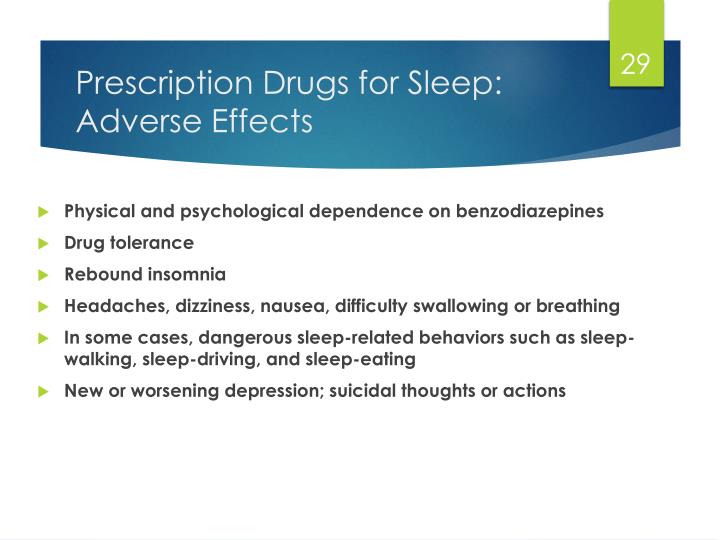
An example of this is ramelteon (Rozerem). Melatonin-like medications: These medications mimic melatonin, a natural hormone that regulates the body’s sleep-wake cycle and promotes sleep.Examples include amitriptyline (Elavil), mirtazapine (Remeron), and trazodone (Desyrel). Doctors widely prescribe some antidepressants for people with anxiety. Antidepressants: Healthcare professionals may also prescribe sedating antidepressants to help a person sleep.However, they have side effects and may cause dependence and rebound symptoms. Long-acting benzodiazepines like diazepam may be better for individuals experiencing early wakefulness or those who need help with anxiety throughout their day. Diazepam (Valium), alprazolam (Xanax), and triazolam (Halcion) are examples of benzodiazepines. Benzodiazepines: Doctors prescribe benzodiazepines to treat insomnia or anxiety that is disabling, severe, and causing extreme distress.Examples of non-benzodiazepines include zolpidem (Ambien), eszopiclone (Lunesta), and zaleplon (Sonata). Non-benzodiazepines, also called “Z” drugs, have fewer reports of dependency, abuse potential, rebound insomnia, and interactions with other medications. They help people fall asleep or stay asleep.


They may decide to treat the two conditions separately or simultaneously. The type of medication a doctor recommends will depend on a person’s age, health status, personal preferences, and severity of symptoms. If this doesn’t help, they may then prescribe medications. Healthcare professionals will usually recommend lifestyle changes and behavioral therapies as the first course of action for people experiencing anxiety and insomnia. Moreover, this “ hyperarousal” is a critical component that contributes to the development of insomnia. People with anxiety commonly present with insomnia symptoms, sleep apnea, poor sleep quality, and excessive sleepiness while awake.Įxcessive worry can keep people up and interfere with their sleep. Insomnia is also an independent risk factor for the development of anxiety. Doctors have long recognized sleep problems to be a symptom of anxiety disorders. Insomnia, characterized by a person’s inability to fall and stay asleep, is the most common sleep disorder. These feelings are out of proportion to the actual situation and are challenging to control.

Most people experience some level of anxiety from time to time.įeelings of intense distress and fear become irrational, persistent, and excessive to the point that they hinder people with anxiety disorders from performing their daily activities. Share on Pinterest Fly View Productions/Getty ImagesĪnxiety is an emotion that involves feelings of worry, tension, and uneasiness.


 0 kommentar(er)
0 kommentar(er)
